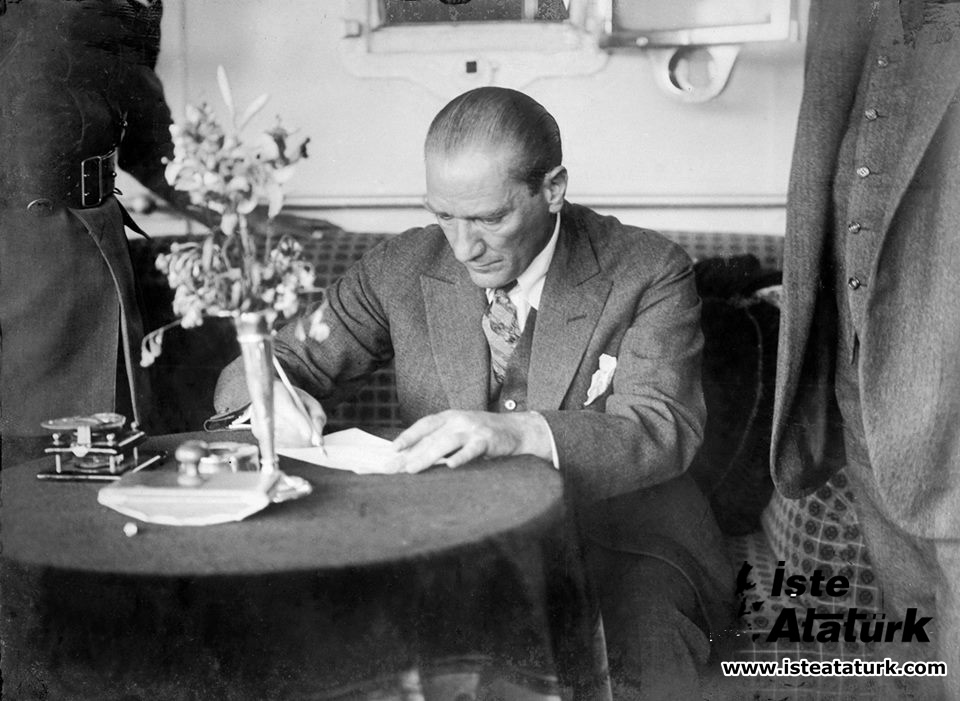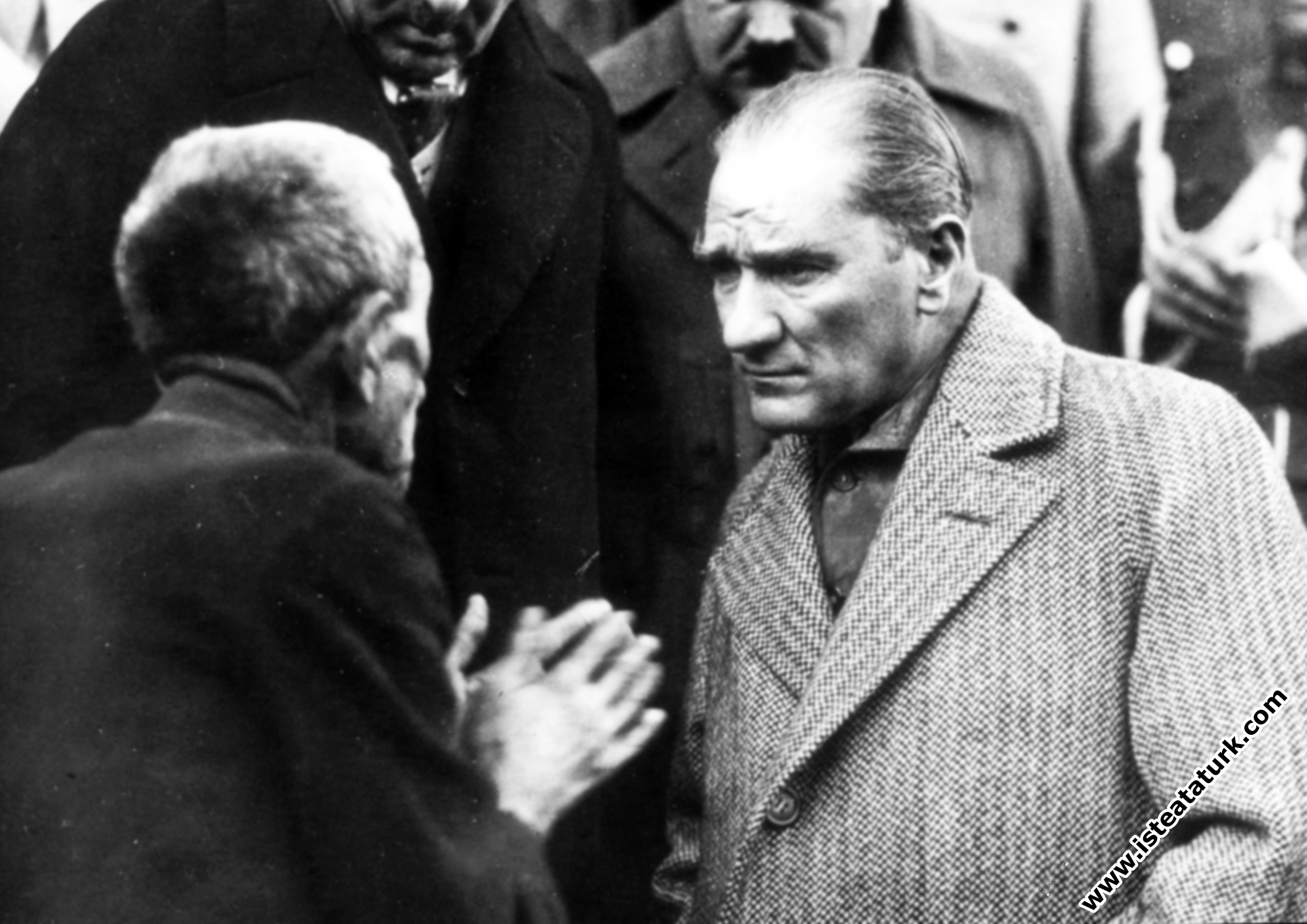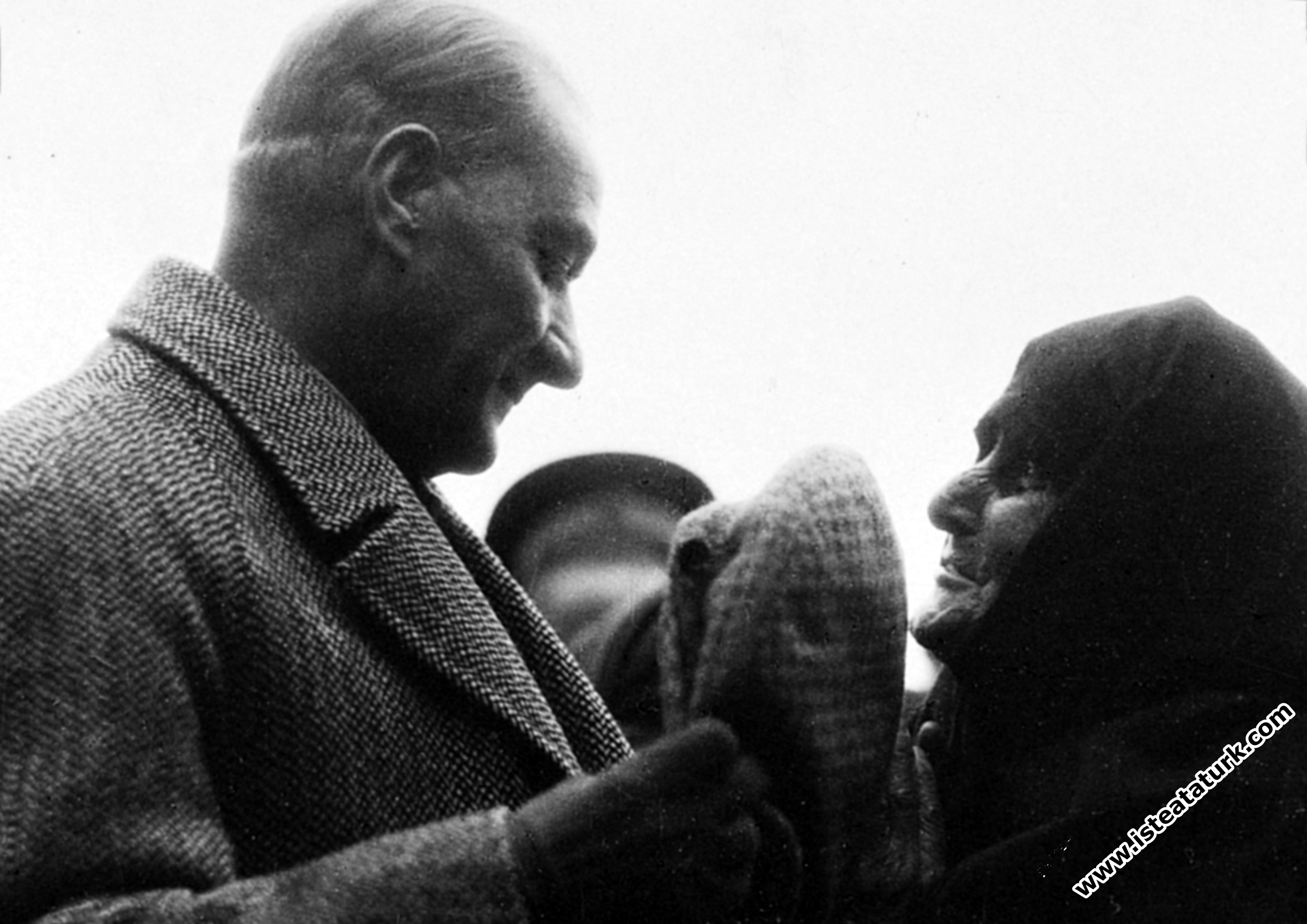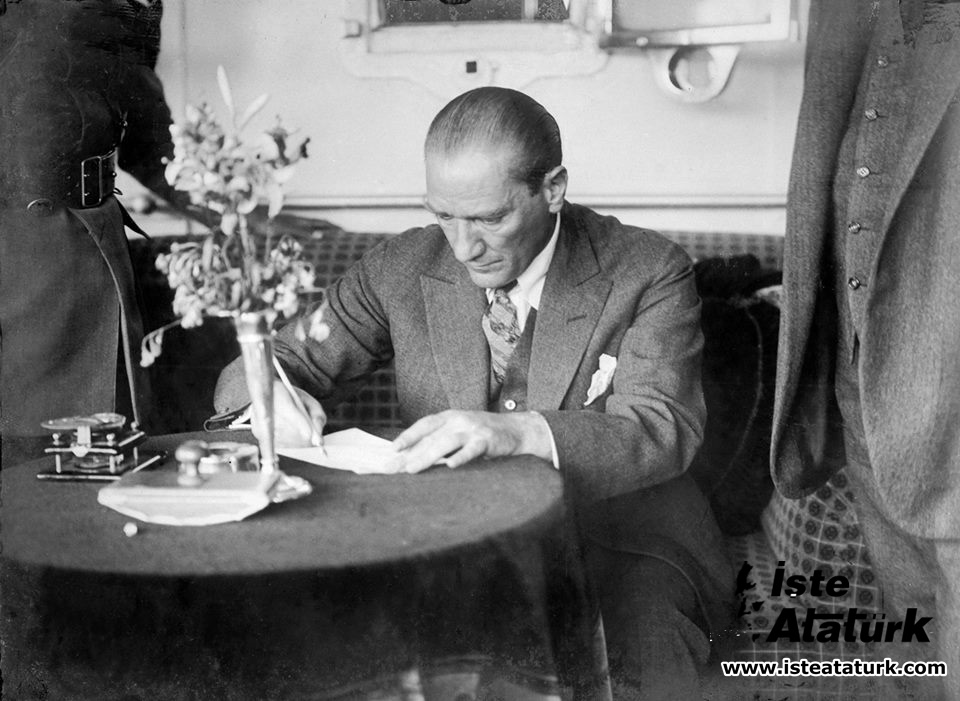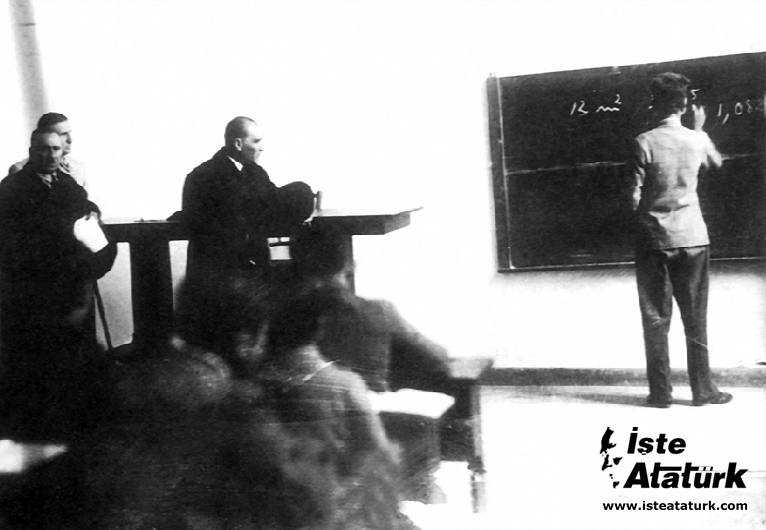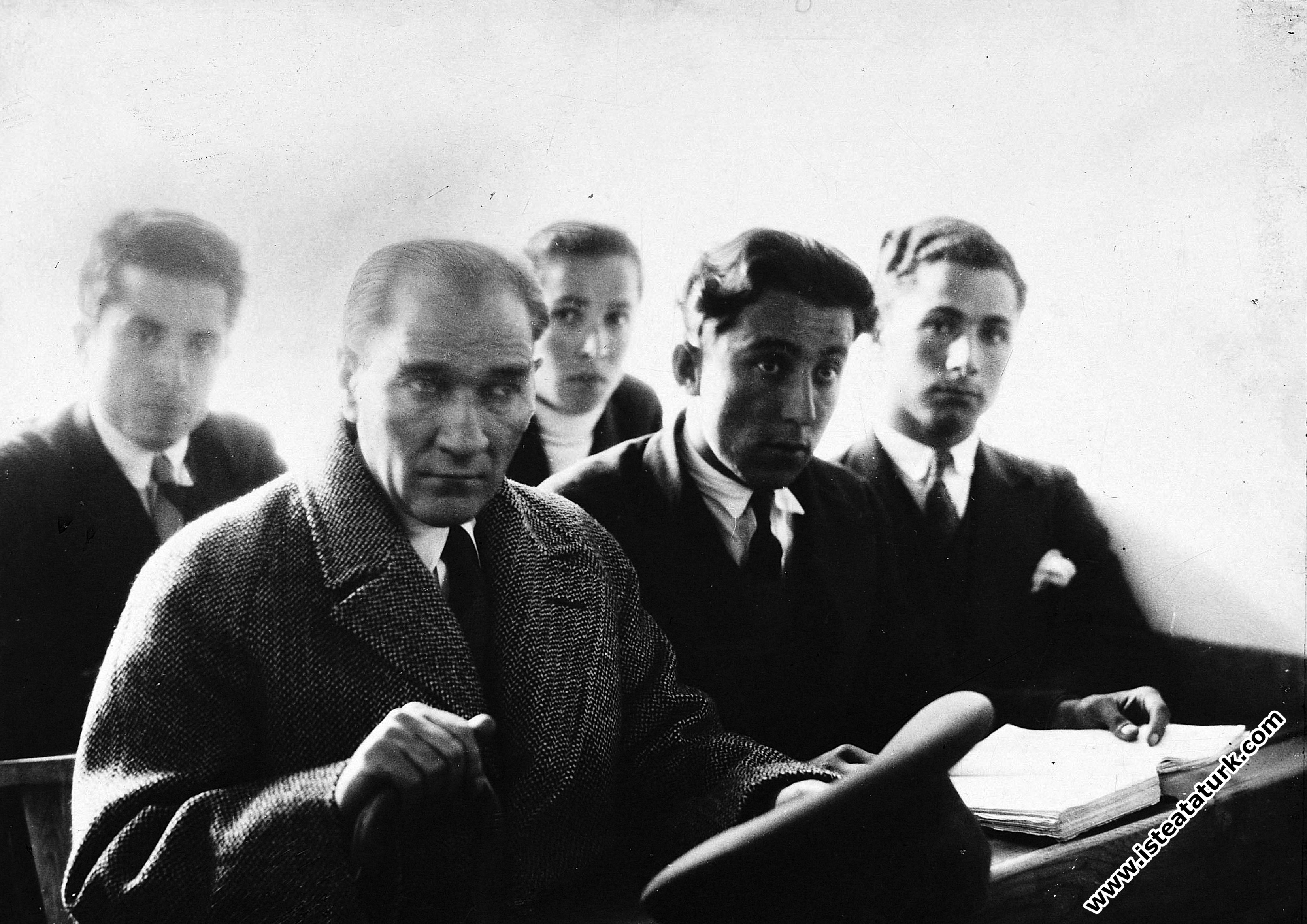
System and Strategy in Kemalism
Character Size
"...I don't want doctrine, we freeze. We are on a march..." Mustafa Kemal Atatürk
System and Strategy in Kemalism
While establishing the Republic of Turkey, Atatürk determined his purpose based on a system and strategy. The system aimed to establish a modern Turkish Republic. Atatürk knew that it was difficult to achieve this goal. Because the Ottoman Empire could not keep up with modern technological developments. For this reason, it revealed a great difference in development between Western societies and Turks. Although it was very difficult, Atatürk believed that it was necessary to eliminate this difference and turn the Turks into a modern society. It was necessary to make a war of independence first, and then a revolution. He created a strategy in order to reach this modern system as soon as possible. The conditions of this strategy were determined by taking into account the characteristics of the Turkish Nation. The strategy created by Atatürk was realized as Kemalism and Atatürk's principles.
Kemalism will forever maintain its importance as a system of thought that the Turkish Nation will always need. In the 20th century, different ways of thinking, ideologies and doctrines have emerged in many societies. Naziism in Germany, Fascism in Italy, Communism in Russia and many other ideologies have been influential and put into practice in many societies in the last century. But none of them have been as permanent as Kemalism. The most basic feature of Kemalism, which distinguishes it from them and makes it permanent, is that this way of thinking emerged from the realities of the Turkish Nation and embraced the contemporary values revealed by civilization. In Kemalism, there is no opposite orientation to the contemporary values of the age; on the contrary, by saving the Turkish people, who could not meet the needs of the age, from their backwardness, brought him a whole new way of life and way of thinking. Of course, this is a brand new system in terms of its historical meaning.
Every system has its main goal. To achieve the main goal, each system creates its own strategies. These strategies are shaped according to the historical, social, political, economic and cultural conditions of the society. The main goal, as a permanent goal, always stands before the society. In ideologies and doctrines that have rigid, dogmatic patterns, this general purpose never changes, even as circumstances change. Sometimes, in some of such ideologies and doctrines, the strategies that were created in the first place in line with the foresight of the person who created the ideology maintain their permanence. In fact, it is this rigidity and immutability that is the main reason that condemns such rigid ideologies to extinction.
This is the most important aspect that distinguishes Kemalism as a system from such rigid and dogmatic ideologies and doctrines. Of course, Kemalism as a system has a general purpose and strategies to achieve this goal. The constant aim of Kemalism; To make the Republic of Turkey prosperous, prosperous and happy, to bring the national culture to the level of contemporary civilization. Atatürk has countless words, behaviors and initiatives that reveal this aim. In 1923, to Maurice Pernot, a French journalist; “We want to modernize our country. Our whole aim is to create a modern, western government in Turkey. What nation wanted to enter civilization but did not turn to the west?” He underlined this fact. Again, in his famous speech on the occasion of the tenth anniversary of the Republic; “We will raise our country to the level of the most prosperous and civilized countries in the world. We will make our nation possess the widest wealth, means and resources. The words "We will raise our national culture above the level of contemporary civilization" express this fact1.
The following words of Tevfik Rüştü Aras also formed the basis of the most well-chosen idea of the system: “This system is based on the nation, gathering the power of the nation in one place, achieving victory by making the most of this power, and making all the reforms required by the civilization of that day by examining the reasons that made the country this way. was based on the principle.”
Atatürk believes that every big breakthrough necessitates a bigger breakthrough. Therefore, although this general purpose has not changed, when a goal set forth in a certain period of history was achieved, it actually directed the Turkish Nation to a new and more comprehensive goal. “I don't want doctrine, we freeze. When he said, “We are on a march”, he emphasized that reason and science, not doctrines, would actually guide the nations, and also revealed the main features of his strategy. When he took his first step on the Anatolian lands in Samsun on 19 May 1919, he determined his main goal as establishing a fully independent new Turkish state based on national sovereignty. He explained his strategy for this after stating his purpose in the Great Speech: “I carry in my conscience the great ability of development that I feel in the conscience and future of the nation, as if it were a national secret,
As a matter of fact, Atatürk's aim in the War of Independence was to establish a new and modern Turkish State with conditions suitable for the requirements of the age and with national sovereignty. This aim was achieved with the wars of national sovereignty and full independence fought by the Turkish Nation against the sultan and the caliph and the western colonial powers. But after these successes were achieved, Atatürk also set new goals; These are the economic, political, cultural and social development of the country, and the democratic content of the republican regime.
With these features, Kemalism, as a system, reveals a project of freedom, independence and development not only for the Turkish Nation, but also for all oppressed oppressed nations. This situation did not go unnoticed by western scientists who focused on the subject. In this respect, it was also stated by western scholars that the Turkish Revolution differed from other great revolutionary movements. For example, as George Duhamel stated, none of the other revolutions dealt with issues such as language and writing, nor changed the philosophy of science and thought methods of nations; but the Turkish Revolution took on the burden of changing the destiny of the Turkish Nation. The most important aspect of his strategy is the famous social scientist Moris Duverger. According to him, the Turkish revolution is not just a slice of Turkish history; it has also become a political system. Although this political system has not yet been definitively described, it has important implications for the third world. For underdeveloped societies that do not approach Moscow or Beijing and desire to head west, it is a political system that reveals the methods to realize these desires. In the four-volume History book written under Atatürk's control, the purpose of the War of Independence is explained as follows: It is the sum of the multi-fronted, national war, to put it another way, the Liberation Movement3. It is a political system that reveals the methods to realize these desires for the underdeveloped societies who want to move towards the west. In the four-volume History book written under Atatürk's control, the purpose of the War of Independence is explained as follows: It is the sum of the multi-fronted, national war, to put it another way, the Liberation Movement3. It is a political system that reveals the methods to realize these desires for the underdeveloped societies who want to move towards the west. In the four-volume History book written under Atatürk's control, the purpose of the War of Independence is explained as follows: It is the sum of the multi-fronted, national war, to put it another way, the Liberation Movement3.
Strategy means the art of deciding on its own goals, which are individual or national, in line with the main purpose that is determined beforehand, and then using the power of creativity and constructiveness that seem to be of value that will definitely bring the individual or society to these goals.
The system is to present all the ways and methods to be followed carefully. Strategy, on the other hand, is defined as the path taken to achieve a predetermined goal.
As a first step, the strategy decides on its own goals that are suitable for a certain purpose. In other words, it draws its own direction of action towards the main purpose. There is a need for the skill of using the power of constructive and creativeness that will definitely reach the individual or society to these goals. All of the ways and methods to be followed in order to reach the goal must be carefully laid out. Strategy is the necessary and most important form of policy to achieve the goal and this goal.
Kemalism, as a system, has a goal and a unique strategy to achieve this goal. The goal of the Kemalist Thought System is to bring the Turkish Nation to the level of contemporary civilization. The strategy it follows to achieve this goal is incompatible neither with the brutal capitalist method of the western world nor with the collectivist system that abolished the human rights and freedoms of the eastern world and brought a new slavery order. Because in both of these systems, there are excesses that do not conform to human nature. The first is human selfishness reaching its peak, and the second is the state ego reaching its peak at the expense of enslaving humans. Therefore, the Kemalist Thought System, apart from both, has a completely different system and strategy.
Atatürk has many words that reveal the strategy that will enable the establishment of the system. One of his words is as follows: “To maintain our existence within our national borders, above all by relying on our own strength, to strive for the real happiness and development of the nation and country... Not to cause harm to the nation in pursuit of arbitrary goals... From the civilized world to civil and humane treatment and mutual friendship. to contemplate”4
Ataturk; He says, “The principle that a person must not be distracted for a moment while doing a useful work for the country and the nation is the true inclination of the nation”.
Republicanism emerges as an indispensable absolute value in the Turkish Revolution. Although the republic alone is an absolute value, it is not sufficient on its own. Other intermediate targets that feed it should also be mentioned. This is again derived from the characteristics of the Turkish Nation. These are summarized as 6 Arrows. The six arrows were put in the following order in Atatürk's statement in 1931: Republicanism, nationalism, populism, statism, secularism, revolutionism... The following sentence succinctly describes Atatürk's main goal in the system: “Republican morality is an administration based on virtue. . Republic is virtue”. His dictum, which has an integral feature, is as follows: “If a nation is great, it becomes greater by knowing itself”. Here, there is an obligation to know the person and the society himself. Although it is a maxim of Atatürk, it is a fact accepted by science that societies that lose their own identity will become the prey of other societies. In that case, people who know themselves and their nation and know their history can do great service to their nation. There is no doubt that societies that know themselves well will form their future strategies in a healthier way and will take firm steps forward. Here, it is better understood the language, history and geography research carried out by Atatürk on the way of researching Turkish history and Anatolian civilizations, and the reasons why he founded the Turkish Language Association, the Turkish Historical Society and the Faculty of Language and History-Geography to realize this. All these efforts, with the history, language of the Turkish Nation, They are attempts to be recognized with the geography on which he lived and with which he was in contact in different historical periods. He believes that at the end of these studies, the Turkish Nation and Turkish people will get to know themselves better.
Although Atatürk did not directly pronounce the word system, he tried to express it while defining the concept of state. Atatürk wrote the first part of the book, Civil Knowledge, which was written and published in 1931 and taught as civics in secondary schools since then, and he defined many concepts, especially the state, nation, democracy, freedoms and forms of freedom. While describing the concept of the state, Atatürk uses the following sentences: “While expressing the power that the state has, we describe this power as unique. In fact, the power that exerts influence in the hearts of the nation constituting the state is not given by any individual person. It is a political influence that exists in the concept of the state itself, and the state
What Atatürk means with this sentence is the concept of domination (sovereignty). It is among the main subjects of Constitutional Law that the type and nature of sovereignty constitutes the form or system of government of a state. Whether that system works well or not depends on the education level of the nation, the level of culture, the character of the rulers and historical wealth. When there are deficiencies in these matters, it is clear that whatever the name of the system is, that system will not work well. It must be admitted that the republic and democracy systems are the most advanced systems that the human mind can create. By saying “Republic is a virtue”, Atatürk wanted to express that this regime that will bring prosperity, happiness and well-being to humanity can only be sustained by knowledgeable and conscious citizens who have love of homeland and nation in their hearts. He emphasizes that the concept of democracy is important not only for Turkish society but also for all societies with the sentence “Democracy always resembles a rising sea”. In short, the system he envisions is a secular, democratic republic. A republic with these qualities is a concept that the Turkish Nation and Turkish youth should strive to keep alive forever. According to Atatürk, the republic will stand forever. For this, it is necessary to work hard, to be useful to the country, to make an effort to operate the system well. The concept of democracy is the method by which we can operate the republic best. Atatürk believed that the Turkish Nation should be governed by a multi-party system, not a single-party system. is a democratic republic. A republic with these qualities is a concept that the Turkish Nation and Turkish youth should strive to keep alive forever. According to Atatürk, the republic will stand forever. For this, it is necessary to work hard, to be useful to the country, to make an effort to operate the system well. The concept of democracy is the method by which we can operate the republic best. Atatürk believed that the Turkish Nation should be governed by a multi-party system, not a single-party system. is a democratic republic. A republic with these qualities is a concept that the Turkish Nation and Turkish youth should strive to keep alive forever. According to Atatürk, the republic will stand forever. For this, it is necessary to work hard, to be useful to the country, to make an effort to operate the system well. The concept of democracy is the method by which we can operate the republic best. Atatürk believed that the Turkish Nation should be governed by a multi-party system, not a single-party system.
Democracy is not a foreign concept to the Turkish Nation. Ataturk; He says, “The person born in the world with a democratic spirit is a Turk”. He said that the Turkish Nation is essentially democratic; He says that his culture, traditions, and the deepest past phases confirm this. According to Atatürk; This situation is an intellectual character in the Turkish Nation. Unfortunately, there have been negative people and forces who wanted to ban this character of the Turkish Nation. For this reason, Atatürk states that if there is anything we can do, it is to fight to eliminate those who want to artificially prevent the nation from using this character5.
The secular, democratic republic that Atatürk laid the foundations of and gifted to the Turkish Nation as a modern administrative mechanism; In Atatürk's words, his horse is the most important vehicle that will carry the Turkish Nation to its luminous horizon. The system, like a functioning machine, has organs that enable it to perform its functions perfectly. The most important of these organs is the TBMM, the place where the will of the nation is manifested. However, when both the citizens and the administrators of the state do not fulfill the requirements of the system, it is inevitable that some problems will arise in the system. This does not indicate that the fault is in the system, but rather that it is not working in harmony with the system, just like the operator who cannot use the machine well. In the course of time, it is of course necessary to renew the system and make needed reforms. The principle of revolutionism envisages this and gives it to the Turkish Nation as a duty. What needs to be done is to demolish the outdated institutions that cannot meet the needs of the age, and to replace them with institutions that will respond to the needs of the Turkish society and that will enable it to take it to the future more confidently and securely. According to the Kemalist Thought System, this is both a right and a duty.
Of course, the system will not function well if obligations are not met; In this case, people and administrators do not have the right to complain about the system. What needs to be done is to complete the deficiencies as soon as possible and make the system work better. However, further development of the system should be perceived as a constant and unchanging task.
The two important elements of the system are the government and the opposition. The first must be the executive, and the second must fulfill its duty to supervise and oppose. What is desired here is to discuss the problems in the use of executive power, to seek the truth and to create alternative solutions. Real opposition cannot be made through disagreements and confrontations, the government and the Opposition have to know that at the end of this road, they will get the worst damage. However, it is clear that both the system and the nation will suffer from this result.
Here, the responsibility of the Turkish intellectual comes to the fore. While thinking about Turkey's problems and suggesting solutions, Turkish intellectuals should analyze the conditions of the Turkish Nation well and determine their needs accordingly. For this reason, Atatürk, on every occasion, says that the ideals that the intelligentsia will inculcate should be taken from the soul and conscience of the people. It is clear that the pursuits that do not comply with the spirit and conscience of the people will not be permanent for a long time. However, it is clear that the impositions that do not comply with the realities of the people will be a factor preventing the Turkish Nation from reaching its goal. As a matter of fact, Atatürk; He says, “The state of those who do not comply with the aspirations of the nation is ismihlal, it is frustration.”
Indeed, there is no doubt that the Turkish Nation is and will be democratic in the past, in the present and in the future. If there are some problems with the democratic system today, they should be addressed. In fact, the answer to this question is clearly evident in the pages of our recent history. Because from time to time, politics and methods were not created within the Kemalist Thought System and adhering to its logic, and were not considered in accordance with its essence.
From Atatürk Turkish Nation; The Turkish Nation also received strength and inspiration from Atatürk and will always remain so.
1 Atatürk's Speeches and Statements, II, Ankara, 1981, p.275.
2 Kemal Atatürk, Speech, Atatürk Research Center spring., Ankara, 1991, p.10-11.
3 History IV, p. 57.
4 Speech, p.299.
5 Vasfi Raşit Sevig, Main Organization Law, I, Istanbul, 1938, p. 329.
M. Vehbi Tanfer
Source: ATATÜRK ARAŞTIRMA MERKEZİ DERGİSİ, Sayı 47, Cilt: XVI, Temmuz 2000
